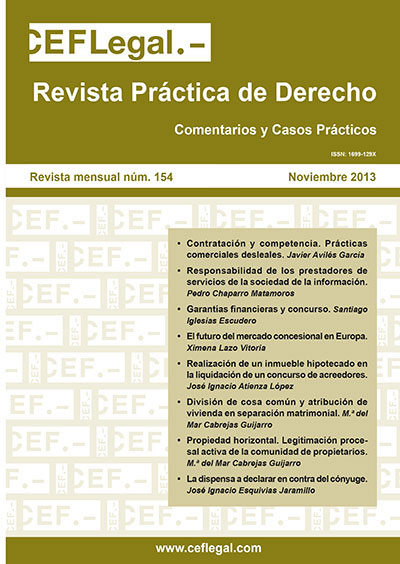Agresión sexual. Prescripción de delitos
Comentario a la STS de 10 de junio de 2013
DOI:
https://doi.org/10.51302/ceflegal.2013.11837Palabras clave:
agresión sexual, prescripción de delitosResumen
El instituto de la prescripción de delitos en derecho penal es de naturaleza material y no procesal –rechazando cualquier analogía con la prescripción civil, que llevaba a algunos tribunales a dar por interrumpido el plazo prescriptivo cuando la dilación se debía a la conducta obstativa del imputado–. En un procedimiento ordinario la decisión sobre la prescripción cuando existe una persona procesada ha de ser adoptada en último término por el tribunal competente para el enjuiciamiento y admitirse su revisabilidad por la Sala Segunda del Tribunal Supremo a través de un recurso de casación. Esos dos principios esenciales quedan salvaguardados: a) aunque la prescripción ha sido acordada inicialmente por el instructor, se ha concedido apelación para que la Audiencia pueda asumirla o rechazarla; b) frente a la decisión de la Audiencia se han abierto las puertas de la casación. El Tribunal Supremo considera aplicable el periodo de prescripción fijado por la ley intermedia por ser más favorable al reo, por lo que determina que el periodo de prescripción era de tres años y no los cinco años actuales para el delito en cuestión.















